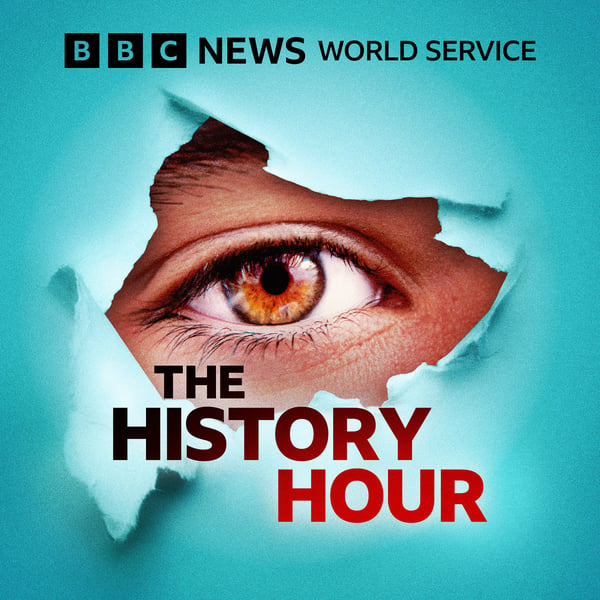The 'Wolf Children' of World War Two and China's TV lessons
The History Hour
BBC
4.4 • 879 Ratings
🗓️ 1 February 2025
⏱️ 51 minutes
🧾️ Download transcript
Summary
Max Pearson presents a collection of the week’s Witness History episodes.
We hear from 'wolf child' Luise Quietsch who was separated from her family and forced to flee East Prussia. Whilst trying to survive during World War Two, these children were likened to hungry wolves roaming through forests.
Journalist and documentary filmmaker Sonya Winterberg who recorded the testimony of “wolf children” for her book, discusses the profound impact it had on their lives.
We also hear about the first major series of English lessons which were broadcast on Chinese television in 1981.
A former student recalls the series of unprecedented teachers’ strikes which temporarily shut down most of New York schools in the late 1960s.
Plus the deadly attack at Milltown Cemetery which took place during the funeral of three IRA members.
Finally we head to Eastern Europe in 1989, where approximately two million people joined hands across across Estonia, Latvia and Lithuania to form a human chain demanding independence from the Soviet Union.
Contributors:
Luise Quietsch - chair of a community of wolf children called Edelweiss-Wolfskinder.
Sonya Winterberg - author of “The Wolf Children of the Eastern Front- Alone and Forgotten”.
Kathy Flower - presenter of Follow Me.
Monifa Edwards - former pupil at a school in the district of Ocean Hill-Brownsville.
Bill Buzenberg - American journalist.
Sandra Kalniete - a Latvian organiser of the human chain protest.
(Photo: Luise Quietsch. Credit: Rita Naujokaitytė)
Transcript
Click on a timestamp to play from that location
| 0:00.0 | Hello and welcome to the History Hour podcast from the BBC World Service with me, Max Pearson, |
| 0:09.8 | the past brought to life by those who were there. |
| 0:12.8 | This week, the British actress who became a huge hit in 1980s China, thanks to the English |
| 0:18.7 | language TV programme she presented. |
| 0:23.6 | Teacher, would you like a gin and tonic? And I said, oh, yes, please, I'd love one. |
| 0:25.6 | And they said, we learnt that from you. |
| 0:27.6 | Would you get me another gin and tonic, please? |
| 0:31.6 | There were no gins or tonics. |
| 0:33.6 | Plus how two million people joined hands |
| 0:35.6 | forming a human chain in the Baltic states in protest at Soviet rule. |
| 0:40.3 | And from 1968, a teacher's strike in New York prompted by mainly black and Latino parents who wanted to say in how their children's schools were run. |
| 0:50.4 | More than 15 million school days have been lost forever. This has happened in New York City, |
| 0:56.1 | where the schools are now closed by the third illegal teacher strikes in school began. |
| 1:00.8 | That's all coming up later in the podcast. But first, we're going back to the final months of |
| 1:05.0 | the Second World War and the period that saw Nazi Germany facing defeat. As the war in the East came to an end, |
| 1:12.5 | thousands of children were left orphaned or separated from their families |
| 1:16.2 | and were forced to flee East Prussia. |
| 1:19.0 | They became known as the Wolf Children. |
| 1:22.3 | Now aged 84, wolf-child Louisa Quitch, |
| 1:26.0 | has been telling Megan Jones about her journey. |
| 1:28.5 | It's January 1945. |
| 1:32.4 | We're in the German city of Labio, which is now called Polyesque in Russia. |
... |
Transcript will be available on the free plan in -55 days. Upgrade to see the full transcript now.
Disclaimer: The podcast and artwork embedded on this page are from BBC, and are the property of its owner and not affiliated with or endorsed by Tapesearch.
Generated transcripts are the property of BBC and are distributed freely under the Fair Use doctrine. Transcripts generated by Tapesearch are not guaranteed to be accurate.
Copyright © Tapesearch 2025.

